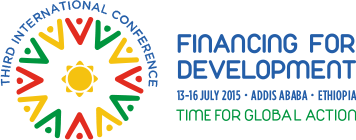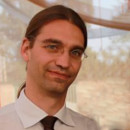Local capacity is the lynchpin to creating investment opportunities at scale
by Johannes Kiess
24 June 2015
Worldwide savings and capital markets can play a key role in helping to close the trillion dollar investment gap to fund the Sustainable Development Goals (SDGs) but there is a lack of good investment opportunities and investable projects at the scale needed to help close the gap. At the Bill & Melinda Gates Foundation we focus on improving health and creating opportunity for the poorest around the world. We believe private capital – invested smartly – can be an important complement to public investment in basic needs. There are two main impediments to this:
- Mismatch between features of investment products and requirements of different types of investors. Ultimately, finance responds to investment opportunities and investors buy what suits them most. Domestic and international pension funds, sovereign wealth funds, insurance companies, equity funds, high net-worth individuals, development agencies, and foundations all have different requirements when it comes to financial assets they can invest in, risks they are willing to take, minimum returns, and due diligence they require. We have to get better in tailoring investment products with various investors’ needs.
- Not enough local capacity (both in terms of volume and skill) to create and promote investment opportunities and package bankable deals. We are missing the very role that financial advisory firms play in developed economies, skilled intermediaries that get deals done. Some large commercial banks have started entering this market, a small number of boutique firms specialize in structuring sustainable investments and a range of private equity firms focus on Africa and other developing country markets. Multilateral and national development banks fulfill these services in-house for their own deals and some of them also provide advisory services to others. However, these services are not yet as broadly available as needed.
What would it take to tackle these issues? At the request of the Ethiopian government, the Bill & Melinda Gates Foundation conducted a series of “investor labs” to bring to light some of the main constraints to fostering greater private investment in the poorest countries and in sectors key to reducing poverty. Based on the outcome of these labs we believe there is a need for providing a framework for creating more investable projects and businesses. Countries need support in building local institutions that can provide financial advisory to build investment pipelines, structure and execute transactions, bring together co-financing from public and private sources (blending), and bring opportunities to scale – including smaller and mid-range deals – through pooled funding.
We must work together to build local teams that understand three vital components of this: project development within the local context; investor requirements; and use of credit enhancement instruments (including those from development finance institutions, and the private sector). Ideally, these local teams would provide the full range of financial products from debt to equity, loans to guarantees, risk mitigation instruments and insurance, as well as of public private partnerships and collaboration. Standardization can help to reduce transaction costs, increase transparency, and make it easier to understand investment opportunities as there is currently too much uncertainty about asset classes and risk assessments. Investment opportunities would need to be designed with the goal of handing these off to larger institutional and strategic investors with the resulting capital then being brought back into supporting additional pipeline projects. A range of local institutions have an important role to play – commercial banks, financial advisory firms, project developers, national development banks, and others.
Finally, funding the SDGs will require the skill to bridge public and private interests – a capability complementing the skill to structure financial products. On the one hand, investors require returns (whether it be market returns for commercial investors or concessional terms for social impact investors). On the other hand, achieving the SDGs requires investments with strong impact on social and economic development and a focus on improving the lives of the poor. A good example for this is the health sector. The case for private investments seems the strongest for funding innovation, research and development for vaccines and health technologies – areas with potential commercial returns. The role of private finance may be more limited for financing the delivery of health services as financial returns raise concerns about access to care for the poor and equitability of the health system. It is in those situations where development partners can play a catalytic role in providing credit enhancements and co-financing for investments with semi-commercial returns or pay for some of the services which are provided and financed by the private sector.

